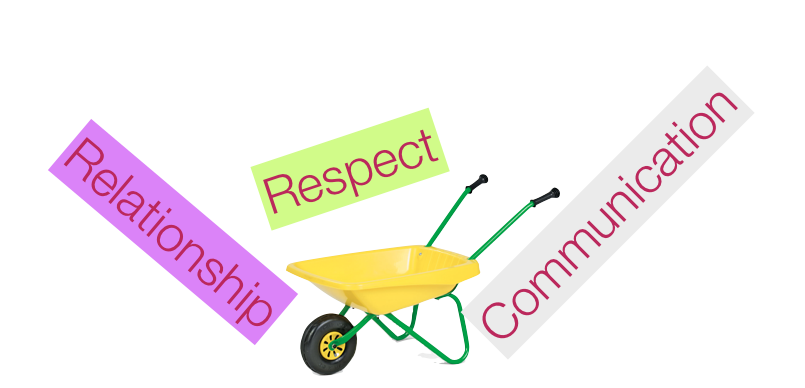A nominalisation is an NLP term. It is described as being the result of a verb being turned into a noun. It is what cannot be put into a wheelbarrow.
Nominalisation have no physical form. The brain uses form to identify something and its purpose, so without this the brain finds it more challenging to find the purpose, thus posing it a challenge, which can lead to confusion.
Eg Lets think about the verb “To Communicate”, ‘There is no communication’. “Communication” being the noun. the word communication is a nominalisation (you can’t put communication in a wheelbarrow, can you?). The Meta Model response would be – ‘Who is (not communicating)?’ ‘How are they (not communicating)?’
Nominalisations are significant because your interpretation of communication may be different to my interpretation of communication. You may think that it means “words” whereas another person may interpret as “actions”. So, if I talk to you about getting better communication it may mean different things to each of us.
You can use nominalisations in order to induce a light form of trance in another person, this is achieved if we use lots of nominalisations together, the mind is not sure exactly what is being said and so it drifts off and gets distracted, this is what a trance is. A nominalisation is an NLP Milton Model language pattern.
Nominalisations are often used to describe things that are important to people eg “Respect in relationships is important to me.” Both the words “respect” and “relationship” are nominalisations. What does respect look like to you? It probably looks different to you than it looks to me. In order to really get to know how I can meet your expectations I need to understand what respect looks like to you, this is where the NLP meta model comes in. The Meta Model provides us with a set of questions that we can use to establish the details of your model of the world .
You cannot put our NLP ‘Training’ in a wheelbarrow either, and there is no need for a meta model response because you can experience it for yourself. Attend an NLP Training Course with us, or train online via our NLP online training centre.

